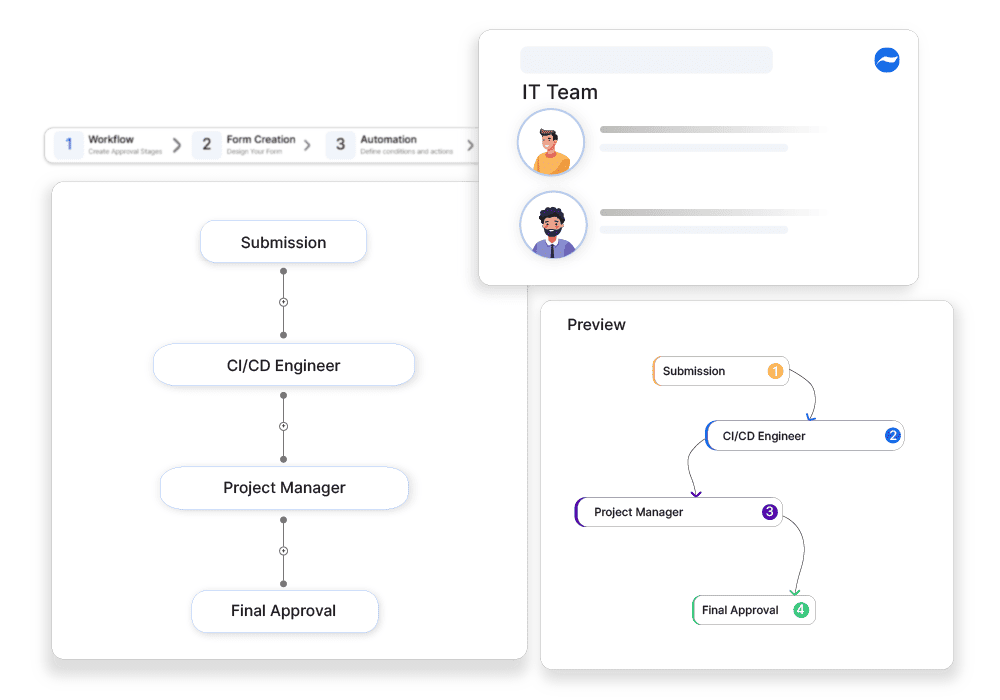Continuous Integration Build Scheduling Workflow
Automate CI build scheduling approvals to optimize resource allocation and streamline development workflows.

Why automate?
Continuous Integration (CI) automates code integration and testing, allowing teams to identify errors early and accelerate development. However, unapproved or uncoordinated CI builds can lead to server overload, increased costs, and deployment conflicts. Without structured approvals, multiple teams may trigger builds simultaneously, straining resources and affecting pipeline efficiency. Manual approvals slow down development, increasing bottlenecks and deployment delays. Cflow helps to automate CI Build Scheduling Approvals, ensuring that build requests are validated, scheduled optimally, and aligned with development cycles, improving software delivery efficiency.
How Cflow Helps:
Approval-Based Build Scheduling
Cflow ensures that all CI build requests follow structured approvals, preventing uncoordinated runs.
Resource Optimization & Cost Control
Approved builds are scheduled based on availability and priority, optimizing server utilization.
Faster Approval Cycles for Critical Builds
Priority builds receive fast-tracked approvals, reducing development slowdowns.
Full Audit Log for CI Pipelines
Cflow logs all approved builds, enabling teams to track build frequency and performance.
Frequently Asked Questions
What is CI build scheduling?
A process to define and optimize when and how builds are triggered in a CI environment.
What are the main challenges?
Queue bottlenecks, redundant builds, and resource wastage.
How can it be improved?
By using smart triggers (e.g., only on code changes), parallelization, and build caching.



